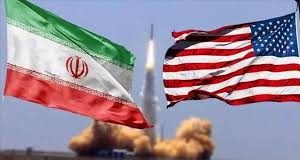Nigeria’s major equity index returned 20%, or N4.7 trillion, at the ring of the closing bell on Lagos Customs Street, swimming against the tide in the larger global stock market, where stocks had lost as much as $18 trillion.
Investors’ appetite for stocks took a new turn during the year, catapulting the main equity index to 54,085.3 on 27th May; that was the pinnacle the market had reached in almost 14 years.
“At one point, it was so obvious that stocks have reduced in price to a point as it has not been seen since 2020. It was very obvious at one point that the market would pick up again,” said Damilare Ojo, head of investment research at Meristem Securities in response to a question on what factors drove stock prices.
“There was room for bargain hunting at that point when we saw that sharp decline in price.”
A testament to its ability to withstand fiercely stormy days and muster domestic participation at a time when the inflow of foreign investors’ dollars has thinned to a mere trickle, the Nigerian stock market’s remarkable performance in the year Bloomberg dubbed the “worst for stocks and bonds in more and decade” appears to be a testament to its ability to withstand fiercely stormy days.
Since 2018, when foreigners accounted for 50.7% of the overall transaction value, foreign participation in the market has been steadily declining. According to information from the Nigerian Exchange (NGX) Limited’s Domestic & Foreign Portfolio Investment Report, that percentage dropped as low as 16.7% in the year to November.
Nigeria’s foreign portfolio investment reached a high of 57.5% in 2014; nevertheless, the specter of dollar shortage has kept foreign investors away from the market in recent years out of concern that the country’s currency problem may make it impossible for them to withdraw their capital. However, that is only one part of the issue.
Due of the impending election in Nigeria in February, foreign portfolio investors are wary about investing in the continent’s largest economy.
Even if there were a few setbacks for international investors during the year, there is a sense that local players’ interest in equities trading is growing as 83.3 percent of all trades for the year were carried out by Nigerians.
The largest wireless provider in Africa, MTN Group, announced its first public share sale in MTN Nigeria. The company intended to sell 575 million shares, but ended up allocating 661.3 million because the offer was 139.5% oversubscribed. 126,720 individual investors expressed interest in the deal.
Early in January, BUA Foods, owned by Nigeria’s second wealthiest man, Abdul Samad Rabiu, listed 18 billion shares valued at N792 billion, marking the first fresh offering of the year.
Early in October, Femi Otedola’s Geregu Power made its debut on the stock exchange by listing 2.5 billion shares, increasing the exchange’s overall equity value by a quarter of a trillion naira.
Top 5 performing stocks: Multiverse Mining and Exploration: 1,890%, Wema: 442%, Meyer: 393%, Academy P: 158%, Champion: 134%
Bottom 5 performing stocks Regal Insurance: 51%, Livestock Feeds: 49.3%, Global Specturm Energy 40.8%, Sunu Assurance: 35.6%, University Press: 35.4%













